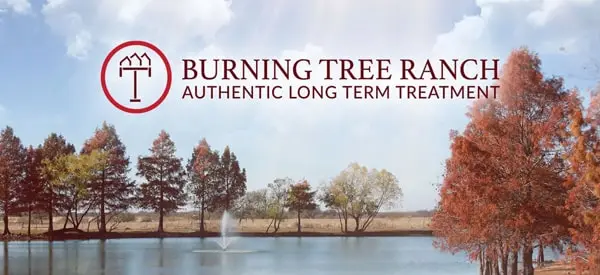Addiction relapse is a common occurrence among individuals who have struggled with addiction. It can be a challenging and overwhelming experience for both the individual and their loved ones. The impact of addiction relapse can be devastating, leading to a complete breakdown of relationships, loss of employment, and even death. However, recognizing the early signs of addiction relapse can be the key to preventing a full-blown relapse. This article explores the early signs of addiction relapse and the importance of recognizing them to prevent further harm.
Understanding Addiction Relapse
Addiction relapse is a tricky beast to understand, but it’s crucial if you or someone you know is struggling with addiction. Essentially, it’s when someone who has been in recovery for a period of time falls back into old habits and starts using again. But why does this happen? There are a variety of factors that can contribute to relapse, including stress, and even just being around people who are using.
To get a handle on addiction relapse, it’s important to understand the stages that can lead to it. The first stage is emotional relapse when someone feels overwhelmed, anxious, or depressed. This can lead to the second stage, mental relapse, where they start to think about using again and may even start to plan it out. Finally, there’s physical relapse, where they start using again.
By understanding these stages and the factors contributing to relapse, you can better equip yourself or your loved one to stay on the road to recovery. It’s not easy, but with the right tools and support, overcoming addiction and staying on the right track is possible.

Burning Tree Ranch is the Nations Best Long Term Dual Diagnosis Treatment Center for the Chronic Relapser
10 Early Warning Signs of Addiction Relapse
Are you or someone you know in recovery from addiction? It’s important to be aware of the early warning signs of relapse. Here are ten red flags to watch out for:
1. Increased Stress Levels
One of the most common precursors to relapse is a marked increase in stress levels. The pressures of daily life, unresolved personal issues, or unexpected challenges can weigh heavily on an individual. Without effective coping mechanisms in place, the allure of returning to old habits to find relief becomes tempting, making it a critical sign to be vigilant about.
2. Changes in Sleeping Patterns
A sudden or progressive alteration in one’s sleep – be it insomnia or oversleeping – can be a subtle but telling signal. Stable sleep patterns are crucial for physical and mental well-being, and disruptions can indicate underlying unrest or anxiety, often precursors to relapse.
3. Isolation from Friends and Family
Withdrawing from social connections and choosing solitude can signify a brewing storm. Isolation can stem from feelings of shame, guilt, or the desire to hide potential usage, distancing the individual from those who support their recovery journey.
4. Neglecting Self-care
A decline in personal grooming, hygiene, or nutrition can be more than just a bad day or week. It can indicate a shift in mindset, where prioritizing oneself and one’s recovery becomes secondary, making the path to relapse more accessible.
5. Irritability and Mood Swings
While everyone has off days, a noticeable increase in irritability, a short temper, or dramatic mood shifts can signal emotional instability. Such emotional fluctuations can create scenarios where the comfort of past addictions seems appealing.
6. Cravings for Drugs or Alcohol
The intense desire to consume a substance again is a direct and potent sign of potential relapse. These cravings can be related to a variety of factors, from environmental cues to emotional states, and require immediate attention.
7. Lying or Dishonesty
Deceit or a shift from transparency often implies something is amiss. Whether it’s lying about one’s whereabouts, activities, or feelings, it can be an attempt to conceal a relapse or the events leading up to one.
8. Loss of Interest in Hobbies or Activities
When passions or activities that once brought joy become mundane or are abandoned altogether, it can hint at a deeper internal struggle. Such a shift can mean the individual is grappling with the pull of their addiction once again.
9. Overconfidence in Recovery
While confidence in one’s recovery journey is commendable, overconfidence can be risky. Believing one is “cured” or immune to relapse can lead to complacency, skipping support group meetings, or exposing oneself to compromising situations, underestimating their potency.
10. Romanticizing Past Drug or Alcohol Use
Looking back at the days of addiction with nostalgia or longing can be a siren call to relapse. If one starts remembering only the “good times” and not the detrimental consequences, it can blur the reasons they sought recovery in the first place.
Don’t let relapse catch you off guard. Stay vigilant and seek help if you notice any of these warning signs. Remember, recovery is a continuous journey, not a destination.
Relapse Prevention at Burning Tree Ranch
At Burning Tree Ranch, we understand that addiction is a lifelong battle. That’s why we offer a comprehensive Relapse Prevention program that equips our clients with the tools they need to maintain their sobriety long after they leave our treatment facility. Our program includes individualized counseling, group therapy, and ongoing support to help our clients stay on track and avoid the pitfalls of addiction. If you or a loved one is struggling with addiction, don’t wait another day to get the help you need. Contact Burning Tree Ranch today and take the first step towards a brighter, healthier future.





